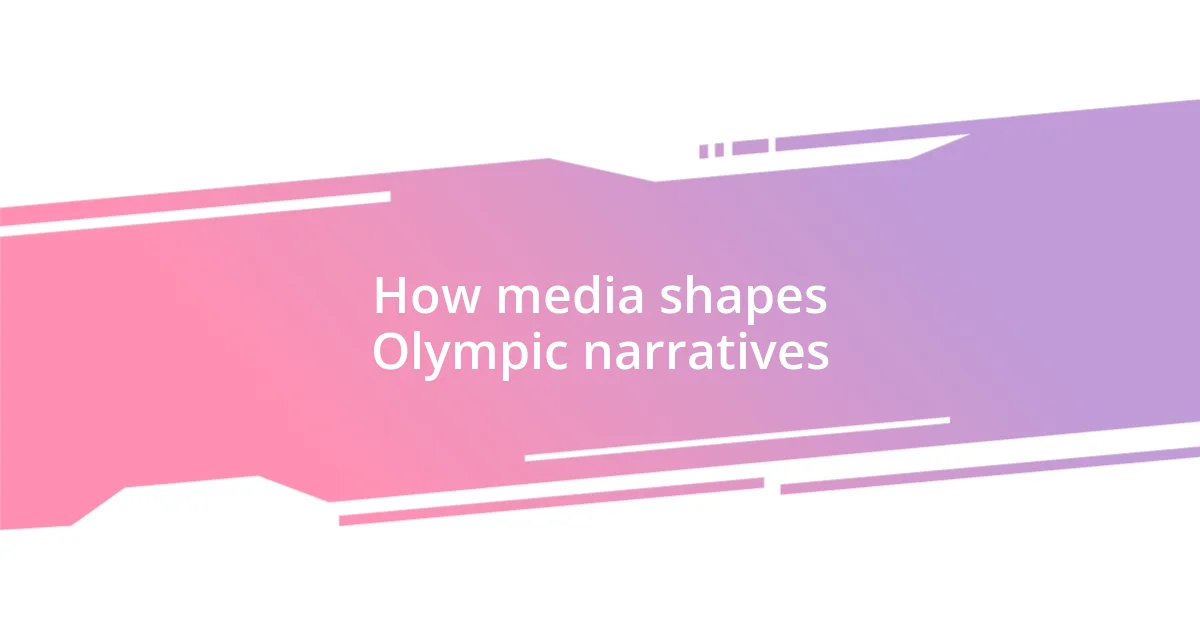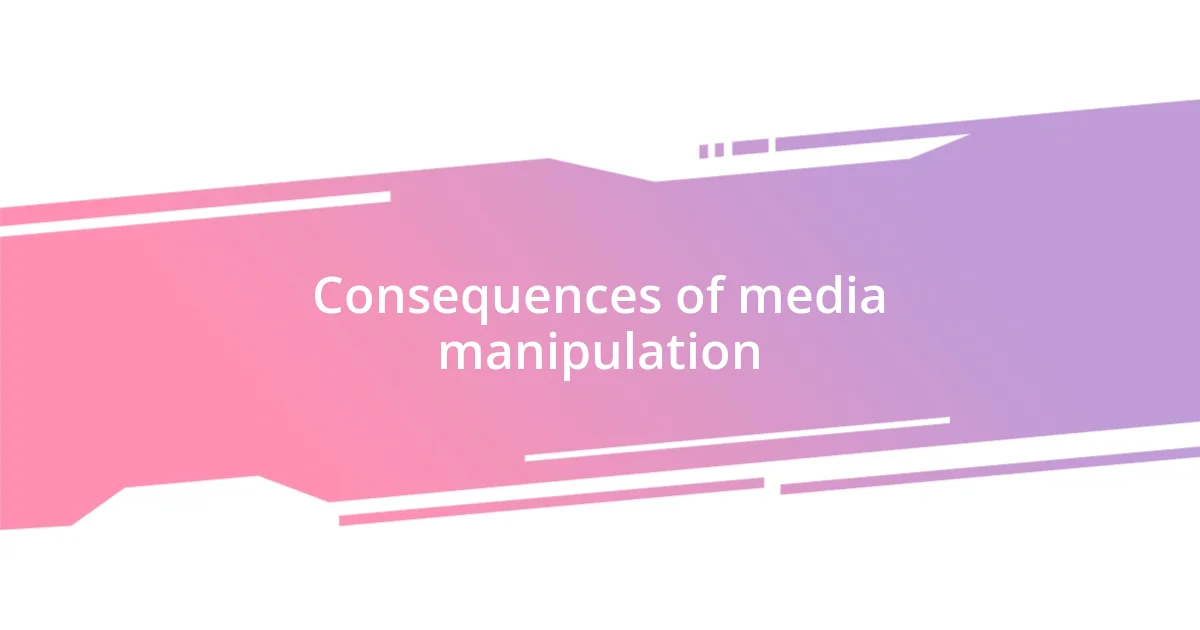Key takeaways:
- Media shapes Olympic narratives through selective storytelling, emotional manipulation, and the framing of events, influencing public perception of athletes.
- Consequences include unrealistic expectations for athletes, distraction from the true spirit of the Olympics due to sensationalism, and a toxic environment among fans driven by outrage.
- Key techniques of media manipulation involve emotional storytelling, event framing, and amplifying controversy, all of which can distort the audience’s understanding of the Games.

How media shapes Olympic narratives
Media plays a crucial role in shaping how we perceive the Olympics. I remember watching the 2008 Beijing Games and being captivated by the emotional backstories of athletes, from their grueling training processes to personal sacrifices. It made me wonder, how much of that narrative was crafted for us, and what stories didn’t make it to the screen?
I’ve often noticed that certain athletes, especially those with compelling personal stories, receive more media attention than others. This selective focus can create a sense of favoritism or bias, which affects public perception. It’s fascinating to think about how these crafted narratives can elevate some athletes to celebrity status while overshadowing others’ remarkable achievements.
When I reflect on these narratives, I can’t help but feel a bit manipulated at times. The media chooses which triumphs to highlight and which heartbreaks to downplay, steering the audience’s emotions. Have you ever felt that tug when a specific athlete’s story pulls at your heartstrings? This emotional direction shapes our support and engagement with the Olympic Games in profound ways.

Analyzing manipulation techniques used
Media manipulation during the Olympics often employs emotional storytelling as a key technique. I remember feeling a deep connection with an athlete during the London 2012 Games. The media told their story of overcoming adversity, which caught my heart—yet I later wondered if it was more about spectacle than substance. This emotional tug can lead us to root for certain athletes without fully understanding the context of their experiences.
Another technique revolves around the framing of events, where certain outcomes are highlighted while others are minimally covered. For instance, during the Rio 2016 Olympics, I noticed that the narrative focused heavily on the host country’s struggles rather than the inspiring feats of lesser-known athletes. This skewed presentation subtly shapes our views, making it crucial to question which narratives we consume and why they resonate with us.
Amplifying controversy is also a prevalent tactic. It can stir up discussions, such as when I found myself engrossed in debates about disqualified athletes. These moments can detract from the spirit of the Games and shift our focus from the thrilling competition to scandals. It’s clear to me that while we cheer for our favorites, we should remain mindful of how these narratives might be crafted and manipulated.
| Technique | Description |
|---|---|
| Emotional Storytelling | Creates connections by highlighting personal journeys of athletes. |
| Event Framing | Focuses on specific outcomes while downplaying others, shaping public perception. |
| Amplifying Controversy | Stirs up debate and distraction from the overall competition. |

Consequences of media manipulation
One significant consequence of media manipulation is the creation of unrealistic expectations for athletes. I recall feeling immense pressure as I watched the build-up to major events, especially when the media painted athletes as flawless heroes. These portrayals can lead to disappointment when real-life struggles surface, as they inevitably do. How can we expect athletes to embody perfection when they, too, face failures and setbacks like anyone else?
Moreover, media manipulation can skew our understanding of the essence of the Olympics. I remember a time when a sensational headline about a scandal overshadowed the triumph of lesser-known athletes. It made me question: are we missing the spirit of camaraderie and competition because we’re too focused on the drama? This shift not only diminishes the athletes’ hard work but distracts us from the true essence of these games.
Finally, the influence of media can engender a toxic environment among fans. I’ve seen how outrage has spread like wildfire, often stemming from sensationalist coverage. When public sentiment is swayed by viral stories, it can lead to extreme reactions that detract from sportsmanship. Isn’t it disheartening when a moment of unity shifts into a battleground of conflict fueled by misrepresentation? This kind of manipulation can create a divide, which ultimately detracts from the Olympic spirit we all cherish.














